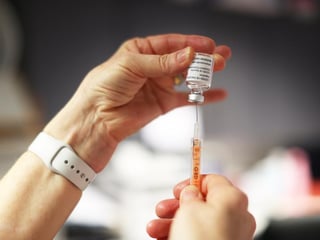Who should be shielding? Full list of clinically vulnerable people - and advice for new Scotland lockdown
People at higher risk of catching coronavirus are being asked to shield again, following the Scottish government's decision to impose a new national lockdown amid rising Covid-19 cases.
The rules around shielding are slightly different to when they were enforced in March 2020, when the clinically extremely vulnerable were told to stay at home at all times.
Advertisement
Hide AdAdvertisement
Hide AdThe latest advice allows outside exercise and medical appointments to be attended, though much of the other guidance around shielding remains - as well as general habits around washing hands and maintaining social distancing.


So, what does this mean for you day-to-day?
How do I know if I should be shielding?
Those being asked to shield will receive a letter or email from the chief medical officer.
The letter provides each vulnerable person advice around what you can and can’t do while the country looks to stop the spread of Covid, such as not taking public transport.
Should I still go to work?
Everyone is being asked to work from home where possible and this is the same for those classed as clinically extremely vulnerable.
However, if you cannot work from home, you are advised not to attend work and to speak with your employer about a change in responsibilities to allow working from home, or alternative government schemes.
These include being placed on furlough through the Coronavirus Job Retention Scheme, which has been extended to the end of April 2021, claiming Statutory Sick Pay (SSP) or Employment Support Allowance (ESA).
Can I still do my shopping?
The latest government advice recommends those shielding not to go to the shops, instead asking either a friend or family member to help.
Alternatively, shoppers who are vulnerable or have a vulnerable child can request priority home delivery slots from supermarkets.
Can I socialise if I’m shielding?
Advertisement
Hide AdAdvertisement
Hide AdThose being asked to shield can still mix with their own household and can go outside for exercise but must take extra precautions to avoid busy areas.
If you’re shielding you can still meet up with someone in your support bubble but you cannot meet with friends or family you do not live with or form part of your household.
Who is classed as clinically extremely vulnerable?
| People classed as clinically extremely vulnerable to coronavirus include: - Solid organ transplant recipients - People with specific cancers - People with cancer who are undergoing chemotherapy or who have had radical radiotherapy for lung cancer - People with cancers of the blood or bone marrow at any stage of treatment (including cancers like leukaemia, lymphoma or myeloma) - People with cancer who are having immunotherapy or other continuing antibody treatments - People with cancer who are having specialised treatments, including protein kinase inhibitors or PARP inhibitors - People who have had bone marrow or stem cell transplants in the last 6 months. Or people who are still taking immunosuppression drugs - People with cystic fibrosis - People who are on home oxygen for a lung condition - People with severe asthma and on regular inhalers and long-term steroid tablets - People with severe COPD (chronic obstructive pulmonary disease) - People with rare diseases including all forms of interstitial lung disease/sarcoidosis - Adults with SCID and homozygous sickle cell disease and adults with Down’s Syndrome - People on immunosuppression therapies that significantly increase risk of infection - People who have had their spleens removed - People on high dose corticosteroids for four weeks or more - People on specific single therapies, e.g. Cyclophosphamide - People on lower dose of corticosteroids in combination with other disease modifying medication - People who are pregnant with significant heart disease, congenital or acquired - People who are receiving renal dialysis treatment - People who have chronic kidney disease stage 5 |
Do I have to shield if I’m over the age of 70?
There is no current guidance to suggest people aged 70 and over need to shield.
